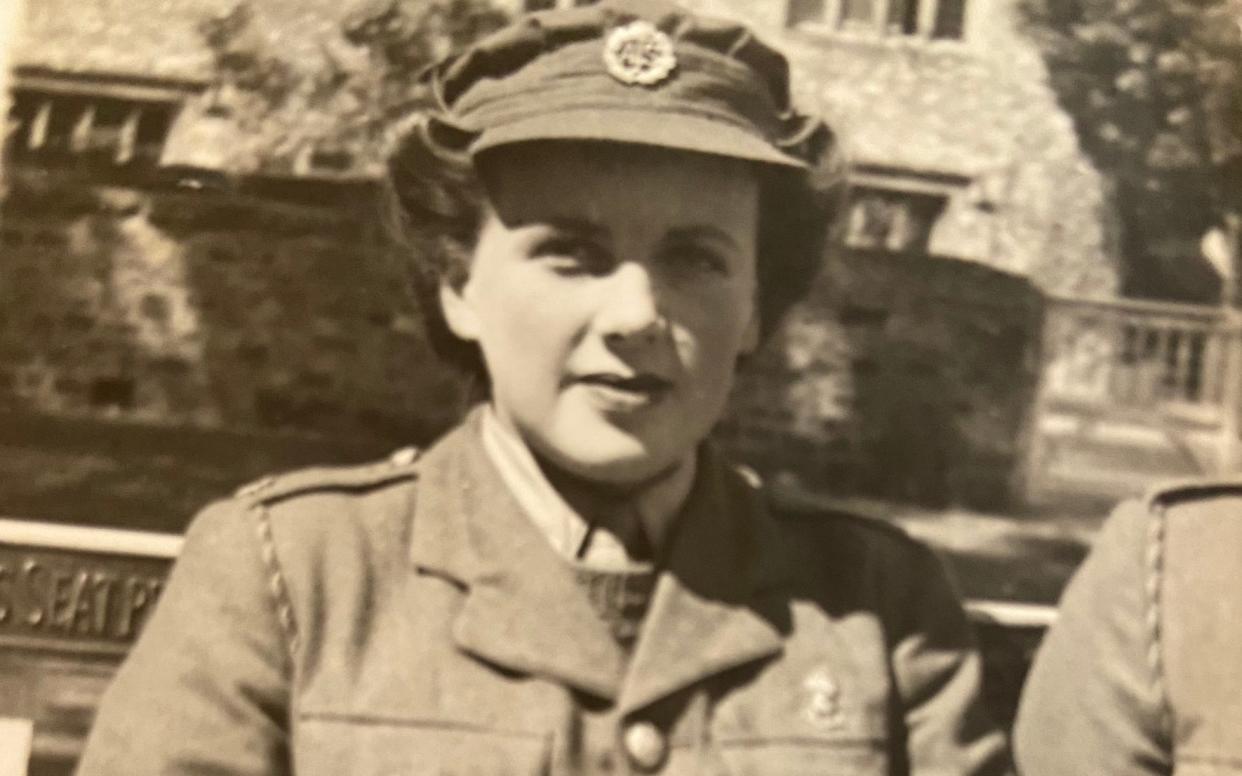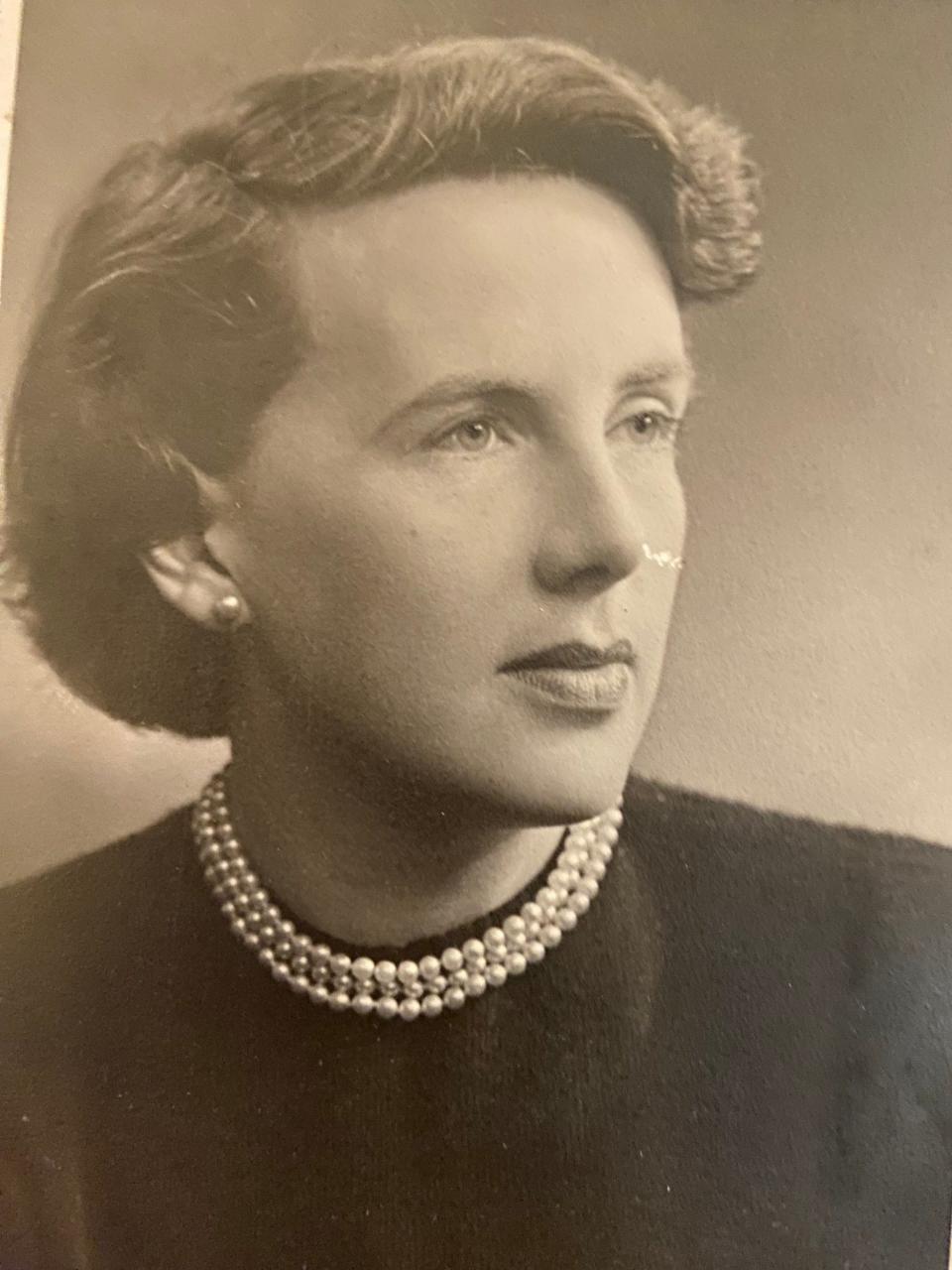Sue Lowther-Pinkerton, ‘daughter of empire’ who served in the wartime ATS then MI5 – obituary

Sue Lowther-Pinkerton, who has died aged 99, was one of the last of the daughters of Empire brought up on the North-West Frontier of what was then India (now Pakistan), and immortalised by Rudyard Kipling in “The Ballad of East and West”.
She was born Susan Kathleen Leslie-Smith on September 9 1924 in a rented room above a betting shop in Camberley where her father, Major Colin Leslie-Smith of the Punjab Regiment, Indian Army, was attending the British Army Staff College.
Leslie-Smith had served in the Great War in Mesopotamia with the 14th Punjab Regiment and his brother Gilbert was killed in action with the 24th Punjab Regiment at Basra. Colin Leslie-Smith also fought in a number of fierce campaigns on the Frontier including action in the Mohmand country in 1908 and Afghanistan and Waziristan between 1919 and 1921.
In 1924 he returned to England, accompanied by his wife Kathleen, née Moxon, to attend the Staff College to prepare him for higher command.
The infant Susan was taken by ship to India, where the family lived in an army cantonment at Peshawar, the capital of the North-West Frontier Province. She and the other British children, including her older brother Peter (later a Rajput officer who was to fight the Japanese in Burma) had adventurous upbringings and she had both a governess and a Rajput Havildar (sergeant) to look after her.
Every child had a pony and they were never allowed outside without putting on a large sola topi to keep the sun off their head. The climate was always tough, and during the hot weather the families were dispatched to the cool of Kashmir.
At the age of six Susan was sent back to England to school. This was done not simply to obtain an education, but to get the children back to a kinder climate where there was less chance of them falling prey to any of the endemic diseases which took such a dreadful toll on the British in India before the discovery of penicillin and other modern medicines.
Sent to school in Bexhill, she accepted the separation but missed the freedom of a Frontier childhood and perhaps as a result became something of a rebellious young student.

One year, when the school photograph was being taken, young Sue stood at one end of the back row. As the camera traversed from her end, during the long panoramic exposure, she decamped and ran around the rear rank and was photographed again at the other end. Only when the photographs were printed and framed was the anomaly discovered and her father found himself presented with a bill for having the school photograph retaken.
On another occasion she sneaked into the teacher’s accommodation armed with other girls’ dressing gown cords and tied the door handles together, so it was some time before the staff were able to escape and as a result they missed Chapel. For this she was placed on a final warning.
At 15 she was obliged to leave school without qualifications, but with a spirit unbroken, and possessed of confidence and a developing personality. With the coming of war she worked on NAAFI vans dispensing “char and wads” to the troops and painting white lines on the roads until old enough to enlist in the Auxiliary Territorial Service (ATS) in 1942. Here she was trained as a driver on ambulances and 15 cwt trucks.
Posted to the Royal School of Artillery at Larkhill, she drove gun limbers over the ranges and received an extra 4d per day danger money.

On one occasion she drove over the control console for a firepower demonstration which had been left hidden in long grass. As a result, multiple charges were prematurely detonated. She defended herself at the subsequent inquiry and was exonerated when she stated that the real culprit was not her but the fool who had left the equipment hidden in long grass.
She was also employed as a motorcycle despatch rider, although she found the bikes extremely heavy and after every halt had to wait for a passing soldier to lift the bike up to enable her to resume her journey.
In December 1945 she was commissioned and placed in charge of motor transport in Hounslow and later Colchester.
Leaving the Army in 1948, she went with her mother and stepfather to Singapore. Here she obtained work in Army intelligence just as the Malayan Emergency was getting under way.
She remembered being trusted to handle secret communications concerning the imminent breakout by HMS Amethyst from its detention by Communist forces in the Yangtze river in 1949, a story immortalised in the 1957 film starring Richard Todd, Yangtse Incident: The Story of HMS Amethyst.
Returning to the UK in 1951 she applied to the “War Office” in reality the Security Service (MI5), working at Leconfield House in Curzon Street, Mayfair. As with most of her generation she steadfastly refused to divulge even the most minor details about her time with the Service.

This was so even when she knew that her son, an officer in the Irish Guards and the Special Air Service Regiment could be trusted with detail about her brief career. The one time she talked to her family was to declare that the allegations that Sir Roger Hollis, whom she greatly admired, was a Soviet agent, were preposterous.
A renowned beauty, with abounding personality, she received eleven proposals of marriage before accepting Anthony Hull Lowther-Pinkerton, always known as “Rumpty”, an adventurous Anglo-Irishman. Too young for the Second World War (he was four years younger than Sue), Lowther-Pinkerton had enlisted in the British South Africa Police in Rhodesia, but was invalided out after being thrown from a horse. Later he joined the Metropolitan Police and served in Special Branch.
Sue remained in MI5 until leaving in 1956 to start a family. In 1961 the family relocated to East Suffolk and thereafter she devoted herself to family and helping others. For almost 50 years she helped organise the annual Poppy Appeal and for several decades delivered meals – on – wheels to remote cottages and farmsteads.
Her wise counsel and kindness to those in need were renowned and to many she became a second mother maintaining her humour and optimism to the very end along with her determination to say nothing of her time with the Security Service.
Sue Lowther-Pinkerton’s husband predeceased her and she is survived by her daughter Sarah, a retired barrister, and her son, Jamie, who served in the Irish Guards and the 22nd Special Air Service Regiment and is an Extra Equerry to the Prince and Princess of Wales.
Sue Lowther-Pinkerton, born September 9 1924, died December 24 2023

 Yahoo News
Yahoo News 
